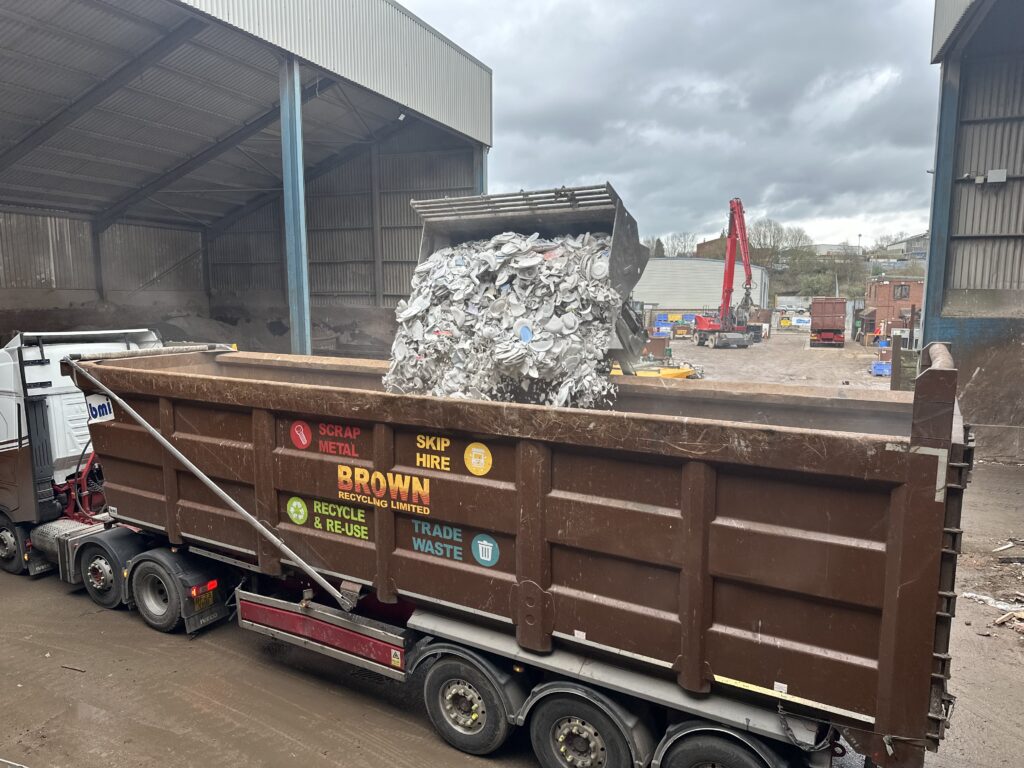The study, “Closing the UK’s green skills gap” identifies the waste and recycling sector as one area for growth in green jobs and makes a number of recommendations.
And, in terms of national action on green jobs in a variety of sectors, the Green Alliance study says that the environment must be “embedded in new legislation”, whether on skills or levelling up and, likewise, that skills are embedded in any forthcoming green legislation.
Such an approach, it says, will avoid the need to retrofit proposed legislation, “as has happened with the recent net zero amendments to the Post-16 Education Bill.”
Future economy
Beyond this, and to ensure that the necessary green skills are developed to underpin a thriving future economy, the government should focus on three areas: industry, institutions and individuals, the report says.
It reasons that the Green Jobs Taskforce made some progress but green jobs needs to be a “continuing area of work not a single exercise. It should be integrated into government and not an external board.”
Helena Bennett, senior policy adviser at Green Alliance, said: “There’s no doubt that net zero will bring huge job opportunities for the UK. But if the prime minister wants a ‘high wage, high skill’ economy, then we need to build a workforce for the green jobs of the future.”

Ms Bennett continued: “Supporting businesses, institutions and individuals will help to develop the skills we need for thriving green industries. But if we don’t have a proper programme the UK risks being outpaced by other countries.”
UK-wide body
The report emphasises: “The government’s view of the future economy and the jobs and skills required will be crucial to providing the necessary incentives for industry to recognise opportunities in the green economy, and the skills it needs or can supply. We support the Green Jobs Taskforce’s recommendation that a UK-wide body should take this forward.”
Looking at the waste sector, the study says the sector currently employs 144,185 people. Expanding the circular economy could create hundreds of thousands of new jobs in the UK, the study argues. “With a few focused policies from the Treasury, valuable products and the resources they are made of could be reused, repaired, remanufactured and recycled. Existing manufacturing skills could be drawn upon to deliver some of the new jobs required. New skills could be cultivated in declining sub-sectors, like switching from manufacturing to remanufacturing.”
Growth areas
Four growth areas for green jobs in the circular economy are suggested
• Reuse: resale retail staff, second hand buyers and sellers.
• Repair: technical engineers: electrical and mechanical.
• Remanufacturing: mechanical and technology engineers.
• Recycling: scrap collectors and waste operatives
It predicts that growth of the circular economy and waste sectors will support between 40,000 (in a low ambition scenario) and 472,000 (in a high ambition scenario) jobs by 2035 across the UK.
But a primary skills gaps exists in waste sorting and reprocessing, repair and manufacturing, circular economy business planning and the material sciences.
Manchester
An example of green jobs is given by Green Alliance as the Renew Shops and Renew Hub in Greater Manchester which waste management company Suez has developed with the Greater Manchester Combined Authority, where it holds a long-term disposal contract.
The report says that the shops and hub have created 10 jobs so far with more anticipated. The hub will employ and train local people and volunteers, and enhance skills and opportunities related to the green economy.
The Green Alliance also highlights the potential for green job creation in other developing areas such as in transport and the development of electric vehicles. It points to jobs in recycling facilities for batteries and in hydrogen supply for alternative fuels.












Subscribe for free